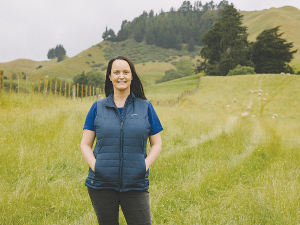Fonterra Milk Price Raised to $9.50/kgMS
As expected, Fonterra has lifted its 2025-26 forecast farmgate milk price mid-point to $9.50/kgMS.
 Rabobank’s Emma Higgins says slowing global milk production will eventually match the tepid demand and prevent further significant price declines.
Rabobank’s Emma Higgins says slowing global milk production will eventually match the tepid demand and prevent further significant price declines.
A full rebalance of China’s dairy market is not expected in the near future, so dairy farmers in New Zealand and around the world will need to manage through more financial pain in the months ahead.
That’s the view in the latest Rabobank Q3 Global Dairy Quarterly report.
However, it says with lower global prices stemming supply growth in key dairy production regions, there is an increasing possibility of a demand resurgence emerging well before milk output can recover – creating a ‘whiplash effect’ in global markets and a bullish run in to 2024.
Co-author and Rabobank senior agricultural analyst Emma Higgins says the severity of the economic headwinds and the duration of the lull in economic growth in China remain uncertain, reducing the likelihood of a strong demand recovery.
A myriad of factors have converged to drive the longed-for dairy demand recovery in China – the world’s largest dairy importer – even further into the future. Lower demand for dairy imports in China has reduced global dairy prices and production.
“Driven by reductions in most key global regions, milk production from the Big 7 export regions is now anticipated to grow by 0.3% year-on-year in 2023, downgraded from last quarter’s estimate of 0.7%. Into 2024 output is expected to climb by 0.4%, far less than the 1.6% annual average gain from 2010-2020,” Higgins explains.
She says slowing global milk production will eventually match the tepid demand growth noted in most regions, preventing further significant price declines.
While the immediate outlook remains challenging, Higgins says there is a ray of optimism for the months ahead as the US Class III milk price and the GDT-weighted average price both fell to Covidlevel lows in recent weeks, allowing buyers to replenish stocks at bargain prices.
Although the Global Dairy Trade (GDT) index has weakened, demand from China still accounts for roughly 30-40% of sales since Q2 and demand from Mexico - the second largest dairy importer - has also been robust.
These factors make a demand-led resurgence in global dairy markets in the months ahead a growing possibility.
Higgins says if buyers feel confident prices have hit a low this cycle and flock to buy products en masse, this could create a shortage of milk and increase demand, creating a whiplash like effect for global dairy prices.
While this may provide some reason for optimism over the coming months, dairy farmers will need to manage through the current financial pain first. Weaker Chinese import demand has seen Rabobank revise its milk price forecast for this season down to NZ$6.75/ kgMS, in line with Fonterra.
Higgins says there are several watch factors for the coming months, which hold both ‘upside’ and ‘downside’ risks for global milk prices.
“Chinese import demand remains the most influential of these, so any signals of increased Chinese buying will be monitored closely, especially due to weaker forecasted milk production growth in dairy export regions.”
Global trade has been thrown into another bout of uncertainty following the overnight ruling by US Supreme Court, striking down President Donald Trump's decision to impose additional tariffs on trading partners.
Controls on the movement of fruit and vegetables in the Auckland suburb of Mt Roskill have been lifted.
Fonterra farmer shareholders and unit holders are in line for another payment in April.
Farmers are being encouraged to take a closer look at the refrigerants running inside their on-farm systems, as international and domestic pressure continues to build on high global warming potential (GWP) 400-series refrigerants.
As expected, Fonterra has lifted its 2025-26 forecast farmgate milk price mid-point to $9.50/kgMS.
Bovonic says a return on investment study has found its automated mastitis detection technology, QuadSense, is delivering financial, labour, and animal-health benefits on New Zealand dairy farms worth an estimated $29,547 per season.

OPINION: Here w go: the election date is set for November 7 and the politicians are out of the gate…
OPINION: ECan data was released a few days ago showing Canterbury farmers have made “giant strides on environmental performance”.